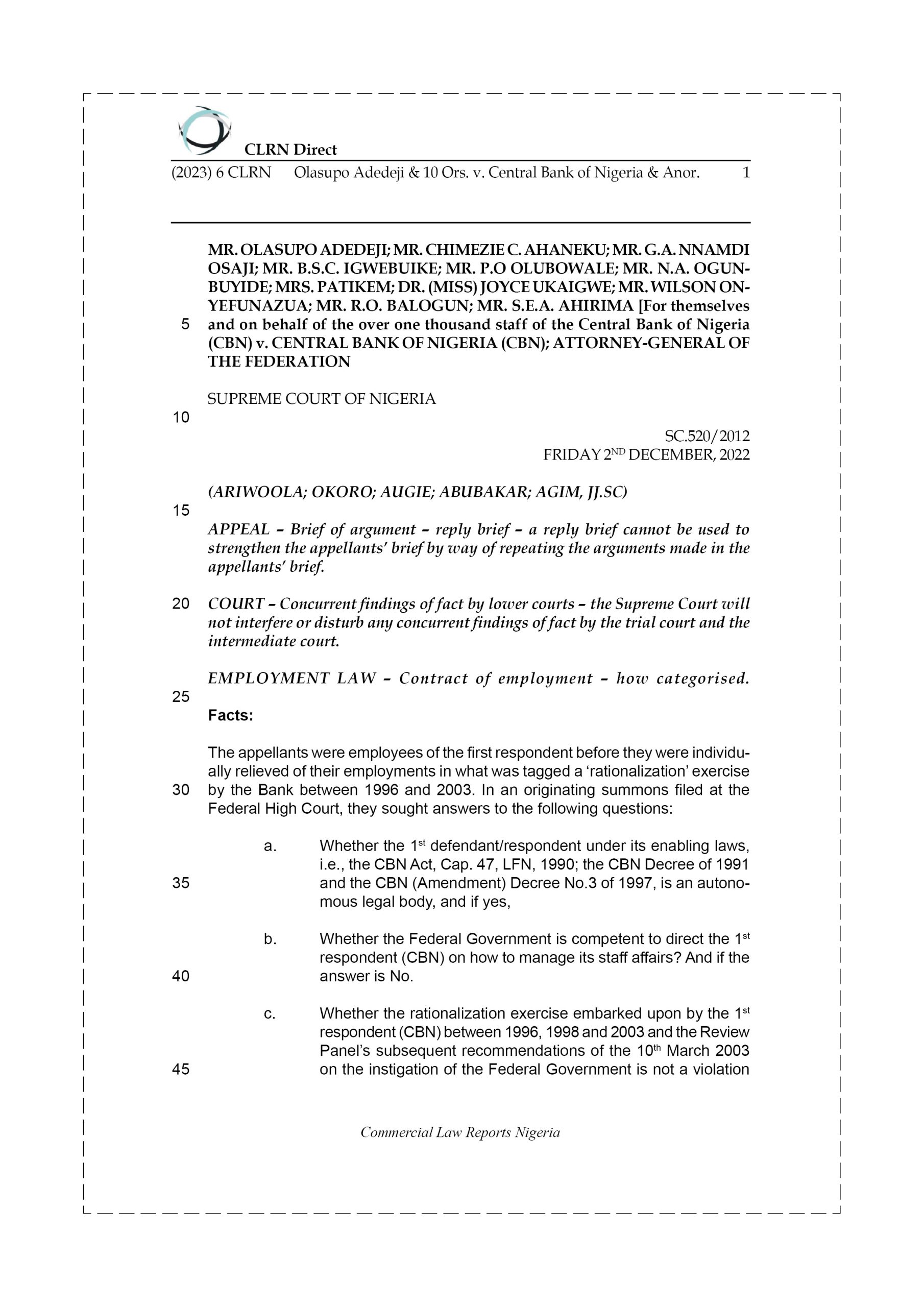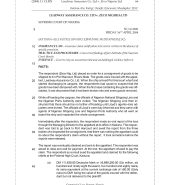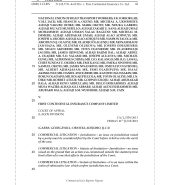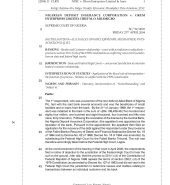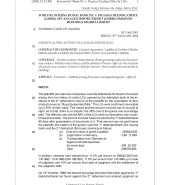-

Usi Enterprises Limited v. Kogi State Government & 2 Ors
- kg
1 × ₦1,000
-

Mobil Producing (Nig) Unlimited v. Tai Local Government Council & 2 Ors
- kg
1 × ₦1,000
-

UTC (Nig) Plc v. Maobison Interlink & Associates Ltd
- kg
1 × ₦1,000
OLASUPO ADEDEJI & 10 ORS. v. CENTRAL BANK OF NIGERIA & ANOR.
₦1,000
In Stock
Facts:
The appellants were employees of the first respondent before they were individually relieved of their employments in what was tagged a ‘rationalization’ exercise by the Bank between 1996 and 2003. In an originating summons filed at the Federal High Court, they sought answers to the following questions:
a. Whether the 1st defendant/respondent under its enabling laws, i.e., the CBN Act, Cap. 47, LFN, 1990; the CBN Decree of 1991 and the CBN (Amendment) Decree No.3 of 1997, is an autonomous legal body, and if yes,
b. Whether the Federal Government is competent to direct the 1st respondent (CBN) on how to manage its staff affairs? And if the answer is No.
c. Whether the rationalization exercise embarked upon by the 1st respondent (CBN) between 1996, 1998 and 2003 and the Review Panel’s subsequent recommendations of the 10th March 2003 on the instigation of the Federal Government is not a violation of the contractual relationship between the 1st respondent (as Employers) and the applicants (the Rationalized Staff)?”
The Appellants lost at the trial court and their appeal to Court of Appeal (court below) was also dismissed on the grounds that:
– Although the second respondent is not competent to direct the termination of the appointment of the first respondent’s staff, the rationalization/retrenchment exercise conducted by the first respondent, which led to the termination of the appellants’ appointments was not carried out by the first respondent at the instance of the second respondent but an act of the board of the first respondent.
– The appellants’ employment as staff of first respondent does not enjoy statutory flavour, therefore, their claim that their termination was conducted by the first respondent in non-compliance with the Staff Manual of the Bank, is of no moment.
– The appellants failed to lead oral evidence in support of their case.
Aggrieved by the decision of the lower court, the Appellants appealed to the Supreme Court.
